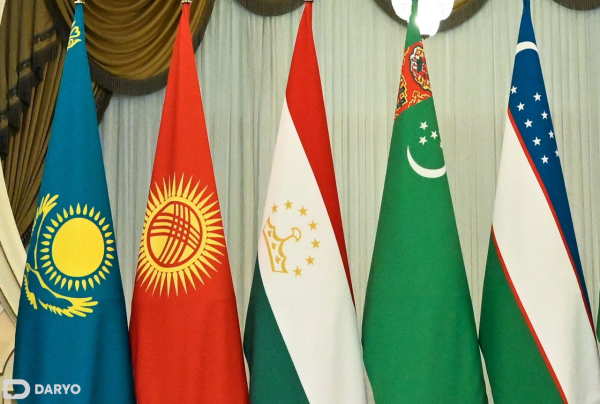In recent years, Central Asia has emerged as a region of significant geopolitical interest, with Russia, China, and the West vying for influence. However, the nations of Central Asia—Kazakhstan, Uzbekistan, Kyrgyzstan, Tajikistan, and Turkmenistan—are increasingly focused on enhancing regional ties to secure their own strategic interests, particularly in the energy sector, an article authored by Nikola Mikovic and published in Lowy Institute shared.

The ongoing conflict in Ukraine has diminished Russia’s influence in Central Asia, opening the door for China, Türkiye, and the European Union to strengthen their presence in the region. Central Asia holds around 20% of the world’s uranium reserves, 17.2% of oil, and 7% of natural gas, making it a key player in the global energy market.
Acknowledging their vast energy resources, regional leaders, particularly from energy-rich countries, are asserting their roles as key influencers in the evolving global political and economic dynamics. This was highlighted during an August summit in Astana, where the presidents of Kazakhstan, Uzbekistan, Kyrgyzstan, Tajikistan, and Turkmenistan deliberated on collaborative economic and energy initiatives, including the advancement of a green agenda and the further expansion of the Trans-Caspian International Transport Route, also known as the Middle Corridor.
Kazakhstan, as the host of the summit, has been at the forefront of promoting regional integration and connectivity. In December 2022, Kazakh President Kassym-Jomart Tokayev and Uzbek President Shavkat Mirziyoyev signed a partnership agreement. Kazakhstan is also allied with other Central Asian countries (excluding neutral Turkmenistan) through the Collective Security Treaty Organisation (CSTO). Tokayev emphasized the need for a regional security architecture, including the development of a catalog of security risks and measures to prevent them.
Kazakhstan has introduced the Central Asia 2040 strategy, which aims to enhance regional cooperation. Astana’s pragmatic foreign policy emphasizes cooperation, dialogue, and mutual prosperity over competition. Tokayev has advocated for shifting from the 19th-century “Great Game” rivalry to a “Great Gain for all in the heart of Eurasia,” positioning Kazakhstan as a leading regional player.
Kazakhstan’s Deputy Foreign Minister Roman Vassilenko emphasized the country’s rising global importance, citing EU officials who remarked, “Kazakhstan used to be in the middle of nowhere, and now it is in the middle of everywhere.” The Astana summit reinforced Kazakhstan’s status as a key regional player.
The summit also saw the participation of Azerbaijan’s President Ilham Aliyev, and Japan’s Prime Minister Fumio Kishida was scheduled to meet with Central Asian leaders, though his visit was postponed due to an earthquake warning. Both countries are eager to build stronger ties with Central Asia, with Tokyo seeking to balance China’s influence and Baku focusing on energy interests.
As the European Union aims to reduce its reliance on Russian energy, it sees Central Asia as a crucial supplier of both fossil fuels and green electricity. Azerbaijan, Kazakhstan, and Uzbekistan have recently agreed to set up a joint venture to export green energy to Europe. However, this will be a long-term project involving the development of green energy sectors in each country and the construction of an undersea cable from the Caspian Sea to the Black Sea and onto Europe.
Tokayev highlighted key energy projects like the Kambarata-1 Hydroelectric Power Station in Kyrgyzstan and the Rogun Hydroelectric Power Station in Tajikistan, calling them the region’s most significant energy projects. While energy will remain crucial for Central Asian foreign policy, ensuring peace and stability amid geopolitical uncertainty will be a top priority.
Despite recent developments, Kazakhstan and its CSTO partners are unlikely to leave the Russian-led organization soon. The CSTO’s lack of action during Ukraine’s recent incursion into Russia’s Kursk region has raised concerns about its effectiveness. However, Central Asian countries are expected to take a pragmatic approach, balancing their ties with Moscow while advancing regional integration.
The summit’s use of Russian language for speeches and official signage stresses the enduring influence of Moscow in the region. Any departure from Russia’s geopolitical orbit is likely to be a gradual and lengthy process as Central Asia continues to navigate its complex relationships with global powers.




